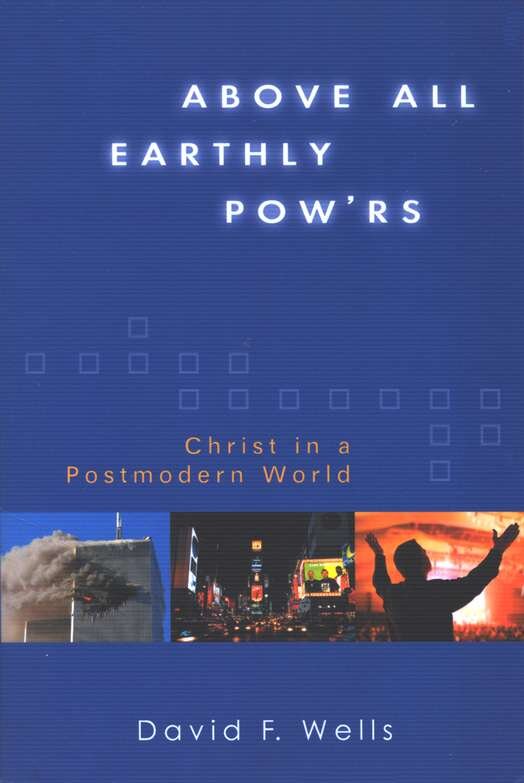David F. Wells, Above All Earthly Powers: Christ in a Postmodern World. Eerdmans, 2005.
Referenced in: Theology of Mission, Proposals and Formulations – Missionally Responsive/Evangelical
LifeandLeadership.com Summary
Much of the current ministry literature seeks to appropriate the postmodern ethos. The Emergent church tends to focus on the promise of postmodernism, while those of the Evaluating-Emergent trajectory focus on the peril. David F. Wells is in the latter category. He, along with D. A. Carson, offer perhaps the most scholarly and prophetic contention that the early postmoderns (church growth, “seeker” churches) and late postmoderns (emergent and some missionals) participate in the erosion of biblical faith and practice. They are insightful and deserve a strong hearing among practicing ministers who are serious about remaining biblically faithful and avoiding cultural captivity. Even if one does not agree with their conclusions, it is part of due diligence to hear them. I enjoy these authors, though each time I cover their content in a class, I usually must deal with the “deer in the headlights” look among my students, not out of disdain but intellectual fatigue. Wells and Carson are not light reading, but are worth the wade for those adequately equipped.
Wells has produced a series of four books. Christ Above All Earthly Powers is the last of the tetralogy. I have provided the Publisher’s Description of each volume below:
No Place for Truth, or Whatever Happened to Evangelical Theology? Eerdmans, 1993 – David Wells has uttered a cry of the heart in summoning the evangelical church to renewal and escape from the cultural captivity he fears is overtaking it. His sweeping analysis examines the collapse of theology in the church, in the academy, and in modern culture, raising profound questions about the future of conservative Protestant faith.
God in the Wasteland: The Reality of Truth in a World of Fading Dreams. Eerdmans, 1994 – In this sequel to the widely praised No Place for Truth, David Wells calls for the restoration of the church based on a fresh encounter with the transcendent God. By looking anew at the way God’s transcendence and immanence have been taken captive by modern appetites, Wells argues convincingly for a reform of the evangelical world.
Losing Our Virtue: Why the Church Must Recover Its Moral Vision. Eerdmans, 1999 – Wells loudly throws down the gauntlet to the evangelical church in this perceptive analysis of our culture in crisis. Painting a vivid description of society’s moral and spiritual confusion, he explains how the church can regain its effectiveness and influence in our postmodern world. A challenging look at social reform vs. spiritual transformation.
Above All Earthly Pow’rs: Christ in a Postmodern World. Eerdmans, 2005 – In our postmodern world, every view has a place at the table but none has the final say. How should the church confess Christ in today’s cultural context?
Above All Earthly Pow’rs, the fourth and final volume of the series that began in 1993 with No Place for Truth, portrays the West in all its complexity, brilliance, and emptiness. As David F. Wells masterfully depicts it, the postmodern ethos of the West is relativistic, individualistic, therapeutic, and yet remarkably spiritual. Wells shows how this postmodern ethos has incorporated into itself the new religious and cultural relativism, the fear and confusion, that began with the last century’s waves of immigration and have continued apace in recent decades.
Wells’s book culminates in a critique of contemporary evangelicalism aimed at both unsettling and reinvigorating readers. Churches that market themselves as relevant and palatable to consumption-oriented postmoderns are indeed swelling in size. But they are doing so, Wells contends, at the expense of the truth of the gospel. By placing a premium on marketing rather than truth, the evangelical church is in danger of trading authentic engagement with culture for worldly success. Welding extensive cultural analysis with serious theology, Above All Earthly Pow’rs issues a prophetic call that the evangelical church cannot afford to ignore.
About the Author
David F. Wells is the Andrew Mutch Distinguished Professor of Historical and Systematic Theology at Gordon-Conwell Theological Seminary. An ordained Congregationalist minister, he is also the author of more than a dozen previous books.
***For additional information on this resource, including reviews, click the bookstore links. Check the reference at page top or the links below for resource guides on related topics.***
See Resources in Related Areas
Related Ministry Resource Guides:
- Missional Church Resources, Introduction and Index
- Missional Philosophy
- Theology of Mission
- Missional Communities
- Missional Leadership / Missional Strategies
- Missional Lifestyle, Discipleship, Spirituality
- Church Leadership and Renewal, Index to Resources
- Ecclesiology
- Evangelism
See Resources on Over 100 Areas of Ministry Leadership:


